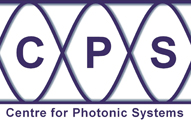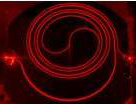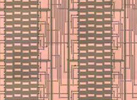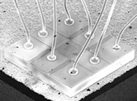| Centre for Photonic Systems Engineering Department Electrical Engineering Division |
 |
 |
 |
 |
 |
| Home | Research | People | Publications | Teaching | CDT | News | Contact |
|---|
|
CURRENT PROJECTS
PREVIOUS PROJECTS |
IKC in Advanced Manufacturing Technologies for Photonics and Electronics - Exploiting Molecular and Macromolecular Materials Objective: CIKC was established to develop advanced manufacturing technologies using new macromolecular material systems in order to capitalise on the strength of UK basic science in areas of polymers, liquid crystals and nanostructures. The emergence of printing, additive processes and low temperature fabrication on flexible (or conformal) substrates challenges the cost base of incumbent technologies. The penetration of soft materials into the electronics and photonics markets has only just begun, but the potential range of applications is very diverse encompassing telecommunications, microelectronics, displays, pharmaceuticals, and structural and aesthetic engineering applications with market estimates measured in $10s of billion per annum. The mission of CIKC is to provide the business and technical expertise, and infrastructure, to enable those with new exploitable concepts to achieve commercial success. The four means by which this is being achieved are (i) by supporting product commercialisation activities and engaging in exploitation activities in close collaboration with industry, for example, developing pilot prototyping facilities (ii) by providing training for those seeking to gain understanding of specific technologies or business strategies (iii) by developing a clear understanding of the overall market needs in the future and optimum strategies for exploitation and public policy design and (iv) by building strong networks with other academic institutions, industry and the policy community. For further information visit: http://www-g.eng.cam.ac.uk/CIKC/ 
|
2020 Centre for Photonic Systems: information provided by webmaster@cps.cam.ac.uk |